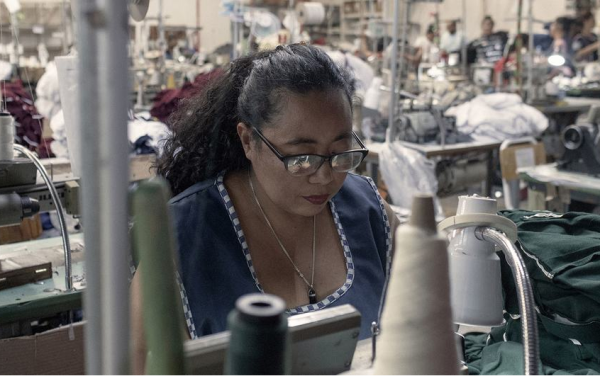
At the beginning of 2024, the International Labour Organization (ILO) made a forecast for the global employment situation in the New Year, and released the World Employment and Social Outlook on January 10: The Trends for 2024 report points out that the current unemployment problem and employment gap are lower than the pre-COVID-19 level, and predicts that the global unemployment rate will rise in 2024, with growing inequality and stagnant productivity causing concern in the global community.
In recent years, as the global economy has been affected by the COVID-19 pandemic, unemployment has been on the rise in many countries, which has led to an increase in social inequality.
First, many businesses have been forced to close or scale down due to the pandemic, resulting in a large number of employed people losing their jobs. Many service industries, such as retail, tourism and catering, are bearing the brunt. Many workers have been forced to switch to other low-paid or temporary jobs, leaving their incomes significantly lower.
Secondly, the rising unemployment rate leads to the widening of the income gap. For those who rely on low-wage jobs or informal employment, their economic situation is more fragile and they are more vulnerable to the shock of unemployment. Conversely, high-income people are more likely to maintain their wealth through asset investments and other means.
Third, employment difficulties also have a greater impact on those with lower levels of education and skills. Many jobs require advanced skills or specific knowledge, and those who are not well educated or have the necessary skills will struggle to find stable employment. This further exacerbates the gap between them and those with better education and skills, resulting in greater inequality in society.
After a brief boost in productivity following the end of the global pandemic, despite technological advances and increased investment, productivity growth has continued to slow, returning to the low growth rates seen over the past decade. According to the World Bank's Global Economic Prospects report, global economic growth is expected to slow for the third consecutive year in 2024, to 2.4%, down from 2.6% in 2023. One reason for the decline in productivity growth is that a lot of investment has gone to less productive sectors, such as services and construction. Other barriers include skills shortages and the dominance of large digital monopolies, which hinder more rapid adoption of technology, especially in developing countries and in industries dominated by low-productivity firms.
Although the global unemployment rate in 2023 is two percentage points lower than in 2022, the outlook for the labor market and the global unemployment situation is still not optimistic. According to statistics, the number of new job seekers worldwide will reach more than 2 million in 2024, coupled with slow economic growth, labor market policies and the global economic situation and other factors, experts expect the global unemployment rate will rise from 5.1% in 2023 to 5.2%.
Moreover, poverty and income inequality continue to rise. According to statistics, in 2023, the number of workers in extreme poverty increased by about 1 million, and the number of workers in moderate poverty increased by 8.4 million. Income inequality continues to rise, and a decline in real disposable income is very bad for boosting aggregate demand and a more sustained economic recovery.
Overall, the rise in global unemployment will have a profound impact on social inequality, which must be paid attention to by all sectors of the world. As Gilbert F. Houngbo, Director-General of the ILO, said, "We must respond to these challenges quickly and effectively." Falling living standards and weak productivity, combined with stubbornly high inflation, will create deeper inequality and ultimately undermine efforts to achieve social justice. Without broader social justice, we will never achieve a sustainable recovery." Governments, enterprises and all sectors of society should work together to actively mitigate the rise in unemployment and provide support and opportunities for the unemployed, so as to better promote global economic development.

報告顯示,中國電力投資加速增長,預計2024年電網基建投資將超過5300億元。
近日,市場迎來了一則引人注目的消息:工業巨頭3M公司(MMM.N)在本周五公布了其季度業績報告,隨後股價飆升至近兩年來的
最近,外媒給OpenAI算了筆賬,今年可能要血虧50億美元。
近日,巴黎奧運會和世界鐵人三項協會聯合發布了一項重大決定,宣布因塞納河水質污染問題,原定於近期進行的奧運會鐵人三項首次下
當地時間7月18日,法國巴黎發生了一起令人震驚的持刀襲警事件。
近期,一則重大消息在國際舞臺上引起軒然大波,馬來西亞宣布加入金磚國家。
調查發現,互聯網和智能手機的使用幹擾了韓國近五分之一學生的生活。